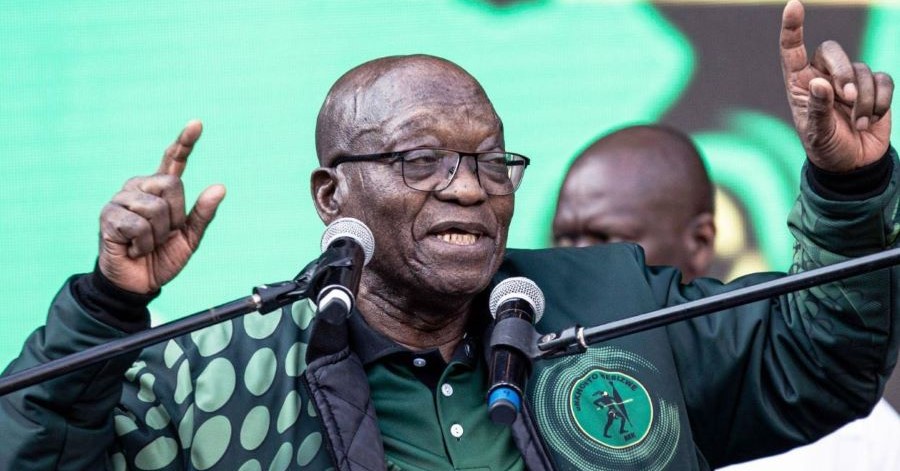(3 Minutes Read)
Political analysts maintain the upcoming election could be South Africa’s most significant in 30 years, as the party ruled the country since then is losing its support base
The South African election scene is hotting up as one of the oldest and largest democracies in the continent is gearing up for elections on May 29, a couple of days from now. Political affiliations are working hard to improve their political base before the crucial poll. As battle lines are drawn, supporters of South Africa’s MK Party, the newly formed party under the leadership of ex-president Jacob Zuma (82) held a major rally in Kwa-Zulu Natal on Saturday, ahead of the critical elections. The octogenarian is aiming to make an impact against the ruling African National Congress (ANC), whom he led earlier. He resigned as president in 2018 amid corruption allegations. At the rally, supporters passionately endorsed the party’s vision, as an expression of solidarity for its leader, Jacob Zuma.
Political analysts maintain the upcoming election could be South Africa’s most significant in 30 years, as the party ruled the country since then is losing its support base. To give a critical push to the election, South Africa’s President Cyril Ramaphosa has promised significant investment in skills training to boost the economy, while saying that the country, if voted to power will continue to address the nibbling energy crisis, which is affecting industry and households alike.
Ramaphosa made this declaration during the ANC’s final rally ahead of the country’s main election on May 29, held last Saturday. The ANC is under unprecedented pressure to keep hold of its parliamentary majority in Africa’s most advanced country. At the rally, Cyril Ramaphosa pledged the creation of quality jobs in the country to absorb the teeming unemployed and to rein inflation. ANC president says they are collaborating closely with various stakeholders to put an end to the intermittent electricity power crisis.
Read Also:
Several polls have the ANC’s support at less than 50%, raising the possibility that it will lose its majority this time and have to form a national coalition to stay in government.





